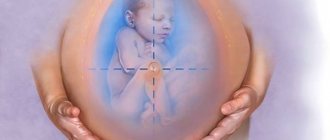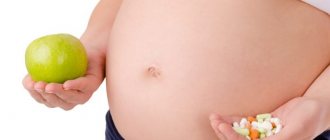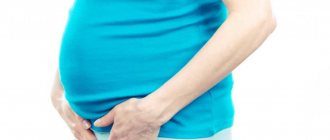Not so long ago it was believed that a small dose of alcohol could not harm the health of the expectant mother and her baby. Of course, we were not talking about strong alcoholic drinks, but about high-quality red wine, which, as is known, has some positive effects when consumed in moderation. However, this point of view is subject to fierce criticism. Are alcohol and pregnancy compatible? What complications can alcoholism or even moderate alcohol consumption cause during pregnancy?
Alcohol and conception
Many men argue that drinking alcohol before conception cannot affect the health of the unborn baby, citing the fact that sperm maturation takes 3 months, so those cells that have not been damaged by alcoholic beverages participate in conception.
But scientists have the opposite opinion on this matter, since experiments have clearly established that alcohol almost instantly penetrates into the spermatic fluid, which maintains the viability of sperm.
The sperm of a healthy man who does not drink alcohol contains about 25% of pathological cells, but they are rarely involved in conception, because their chances of bypassing healthy sperm are small. But after drinking alcohol, these chances increase and are practically equalized, which means that the egg can be fertilized by a pathological element, which will lead to termination of pregnancy or the birth of a child with genetic pathologies and abnormalities.
The eggs in a woman’s body mature every month, but their development is also influenced by many factors. Each ovary contains a certain number of eggs, which are always individual, and they are not renewed, but simply mature at their allotted time.
If a woman regularly drinks alcohol, her eggs may be damaged before they mature and enter the fallopian tube for subsequent fertilization. Pregnancy and alcohol, as well as alcohol before pregnancy and before conception, create a high level of threat of having a child with congenital pathologies and deformities.
Can pregnant women drink champagne?
The answer to this question will depend on many parameters: the quality of the wine, what “moderate” dose is specifically for you, your state of health, the presence of pregnancy pathologies, the fullness of your stomach, in the end.
First of all, let's figure out what kind of champagne you are going to drink. Modern industry produces a lot of cheap options that contain powder materials mixed with alcohol, flavors and even dyes. In addition, different types of champagne have individual sugar levels. During pregnancy, you can only drink dry white champagne made from natural grapes or other fruits.
As for the volume that doctors allow, only 350 ml is allowed for all 9 months of pregnancy. That is, one glass for the New Year, and one for a birthday (wedding). Remember that alcohol should not be consumed on an empty stomach (eat a fatty snack, such as a cheese sandwich, before drinking).
As for the periods at which it is allowed to consume the indicated 350 ml, we are talking about the beginning of the first and third trimester of pregnancy.
Alcoholic drinks in early pregnancy
The first weeks of pregnancy and alcohol provide almost a 95% guarantee that the unborn baby will not be healthy, since after implantation of the embryo in the uterine cavity, it becomes sensitive to the effects of any negative factors.
Including alcoholic beverages, which can not only lead to severe congenital diseases, but also to the death of the fetus at any stage.
Sometimes just a glass is enough to cause serious harm to the fetus, while the damaging effect is exerted not only by the alcohol itself, contained in any modern alcoholic beverage, but also by its breakdown products, in particular, acetaldehyde.
Ethanol alcohol causes spasm of the vessels of the umbilical cord and placenta, which leads to a deterioration in their functioning. Because of this, the fetus does not receive the oxygen and nutrients it needs, which slows down its development.
Acetaldehyde has a detrimental effect on embryonic cells, can change the structure of DNA, and cause many deformities. Due to alcohol, the level of hormones and metabolism in the baby’s tissues is disrupted, as well as the nervous system, which is especially sensitive to the effects of alcohol.
Drinking alcohol in the first weeks of pregnancy often leads to early miscarriages, as well as to the birth of premature babies, often with severe fatal alcohol syndrome, characterized by irreversible disorders, in most cases not amenable to any treatment, even surgery.
How much is allowed to drink?
You must understand that many doctors prescribe dry red wine and cognac for medicinal purposes. These drinks allow you to:
- get rid of anxiety and relax;
- reduce sugar levels;
- increase the amount of hemoglobin in the blood;
- remove waste and toxins from the body;
- improve the process of hematopoiesis;
- improve the functioning of the cardiovascular system.
However, alcohol is always a risk for the body.
Excessive use can cause irreparable harm. This is especially true during pregnancy. Therefore, it is necessary to take into account the potential benefits of alcoholic beverages and the possible harm when consuming them. If a woman’s problems during pregnancy cannot be solved otherwise, she can take no more than one teaspoon of the prescribed drink.
Thus, drinks containing ethyl alcohol can terminate a pregnancy. They also often cause pathologies in the development of the fetus, when identified, it is necessary to begin appropriate therapy to correct the problem. But such treatment is not always successful, so the baby has to suffer all his life from health problems that were caused by alcohol during fetal development.
Alcohol and the fetus: alcohol syndrome
Fatal alcohol syndrome is a condition in which the fetus develops various abnormalities under the influence of alcoholic beverages.
According to statistics and studies, it has been found that drinking alcohol during pregnancy in the first 16 weeks increases the risk of miscarriage or stillbirth by almost 70%.
The appearance of fatal alcohol syndrome is most often observed in cases where a woman drinks alcohol daily, even in small quantities; 3-4 doses of 15 grams are enough. With smaller doses of alcohol during pregnancy in the early stages, the pathologies will be less pronounced, but such actions will not remain without consequences in any case.
According to experts, in women and girls who drink, the very structure of the eggs is damaged, where the embedded genetic information is destroyed, so they will not be able to give birth to a healthy child.
Signs of fatal alcohol syndrome are considered to be:
- low baby weight at birth;
- presence of physical development disorders;
- presence of disorders of the nervous system and brain;
- underdevelopment of the jaws, lips, nose, cheekbones and other pathologies of the face and head;
- the presence of disturbances in the functioning of internal organs.
The most dangerous period in terms of alcohol consumption is the period from 7 to 12 weeks, since it is at this time that the fetus’s brain begins to develop, and nerve cells destroyed by alcohol can never be restored. Read more about the 7th week of pregnancy→
As a result, in the best case, the baby will have problems with learning, attention, memory, thinking in the future, intellectual abilities, hearing or speech will be impaired, and in the worst case, the baby will simply die during childbirth, since he will not be able to exist outside the mother’s body.
Consequences of drinking alcohol
Drinking alcohol can cause serious harm not only to the pregnant woman, but also to the fetus. How does alcohol affect and what consequences may arise from the abuse of alcohol-containing drinks?
It is known that alcohol is eliminated from the body using a special enzyme produced by the liver. The embryo lacks this enzyme. Consequently, the breakdown products of alcohol remain in his body much longer than in the body of a pregnant woman. This means that the consequences of drinking alcohol during pregnancy, even in minimal doses, will be very negative, primarily for the child who has not yet been born.
How does alcohol affect pregnancy?
The insidiousness of alcohol during pregnancy is widely known, as is the unpredictability of its effects. The effect of alcohol on the body of the unborn baby can appear immediately, even in the prenatal period, or it can become apparent after birth.
It is the influence of alcohol on pregnancy, its course and the development of the baby that causes congenital disorders and diseases, as well as delays in many physical processes. For example, the influence of alcohol can be expressed in:
- various psychological diseases;
- the presence of defects in the development of internal organs;
- learning problems, developmental delays from peers or complete mental retardation;
- defects of the musculoskeletal system and poor physical development;
- weakness of the immune system;
- pathologies of the development of the respiratory, nervous, cardiovascular systems;
- congenital predisposition to alcoholism.
You need to think about the health of your unborn baby at the pregnancy planning stage and clearly understand that pregnancy and alcohol in the early stages, as well as throughout pregnancy, are simply incompatible.
And this applies not only to the future mother of the baby, but also to the father, since if a woman drinks an alcohol-containing drink before conception, it will not harm the future fetus, but men, in order not to harm the unborn child, should give up alcohol 3-4 months before conception.
The negative effect of alcohol on pregnancy also lies in the fact that due to such drinks, the woman’s body is unable to properly absorb many of the necessary nutrients, vitamins and microelements, for example, iron, vitamin C, folic acid, zinc.
This leads to a strong decrease in hemoglobin levels, resulting in fetal hypoxia. This condition of a developing baby has become so common in recent years that many women have stopped paying attention to it.
Hypoxia, in essence, is suffocation, which means that the baby simply suffocates due to lack of oxygen, and this leads to many disorders and pathological changes in vital organs and systems.
Often external alcoholic manifestations occur in newborns in the area of the face and head, expressed in too large sizes of the mouth and the head itself, asymmetry, narrow eye sockets, wide bridge of the nose, pear-shaped head, too high palate, cleft lip, strabismus, low forehead and other deformities .
Unfortunately, the birth of children with severe alcohol syndrome and all kinds of disorders and defects is no longer uncommon today. For this reason, doctors strongly recommend that all future parents and especially young people take care in advance not only of preserving their own health, but also of the health of their future children.
Author: Irina Vaganova, doctor, especially for Mama66.ru
The effect of alcohol on the embryo in the first 10–12 days from conception
A woman is already born with a full set of follicles (about 500 thousand), and throughout her entire life they only die, no new ones are formed. This is not scary, since during the entire childbearing period only 400–500 of them will mature.
But under the influence of alcohol, the follicles begin to die more intensively, and some are damaged. If a sperm fertilizes a diseased egg, then the child may subsequently be born with a congenital pathology. The less a woman drinks alcohol, the healthier her eggs are.
Even strong alcohol drunk immediately after conception or in the first few days after it will not affect the condition of the fertilized egg. If the egg was initially healthy, then the division process is carried out according to the plan laid down by nature.
The danger is that in the body of the expectant mother, ethanol provokes increased secretion in the fallopian tubes. It is through these tubes, dividing intensively along the way, that the egg travels to the uterus in the first 4–5 days after conception. If the fallopian tubes become blocked, the embryo will become stuck and lodge directly in the tube.
When the embryo, already consisting of 58 cells, enters the uterus on the 4th–5th day after conception, it begins to implant and its outer shell, the chorion, is formed. Up to the 13th day, while there is no placental circulatory system yet, alcohol drunk by the mother can kill the embryo and provoke a miscarriage. But alcohol cannot cause any disease in the fetus.
Everything that has been said is true regarding those women who drink little, rarely, and only high-quality alcoholic beverages. Of course, when planning a pregnancy, it is better to give up alcohol altogether, but anything can happen in life.
If the expectant mother, not yet knowing about the pregnancy, drank alcohol in the first week and a half after conception, there is no need to worry: this will not affect the baby’s health. Of course, it is imperative to check whether an ectopic pregnancy has occurred.










